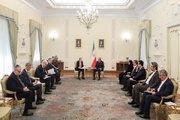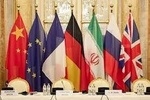Companies providing services such as pipe-laying are being targeted, as Washington tries to halt the completion of the $10.5 billion (€9.6 billion) pipeline, which would transport gas under the Baltic Sea, DW reported.
The sanctions, which overwhelmingly passed in the House last week, are expected to be signed into force as part of a defense spending bill by US President Donald Trump later this week.
The Trump administration would then have 60 days to identify companies and individuals providing services on the pipeline. The sanctions would revoke US visas and block the property of these individuals. Those targeted by the sanctions would then have 30 days to wind down their operations.
Switzerland-based Allseas, which has been hired by Russia's Gazprom to build the offshore section, is one company that could be targeted by the sanctions.
US officials believe the pipeline will increase Europe's reliance on Russian energy, put billions of dollars in Moscow's coffers, and increase Russian President Putin's influence.
However, German Foreign Minister Heiko Maas has urged the US not to meddle in European energy policy.
Speaking on German television last week, Maas criticized the House decision to move ahead on Nord Stream 2 sanctions.
"We think this is unacceptable, because it is ultimately a move to influence autonomous decisions that are made in Europe."
"European energy policy is decided in Europe, not in the US," Maas later tweeted.
The German-Russian Chamber of Commerce said last week that the pipeline is essential for European energy security and called for retaliatory sanctions on the US.
German Bundestag member Andreas Nick told DW that sanctions over Nord Stream 2 would unite Germany behind the project.
"It's an issue of national sovereignty, and it is potentially a liability for trans-Atlantic relations," said Nick.
MNA/PR























Your Comment